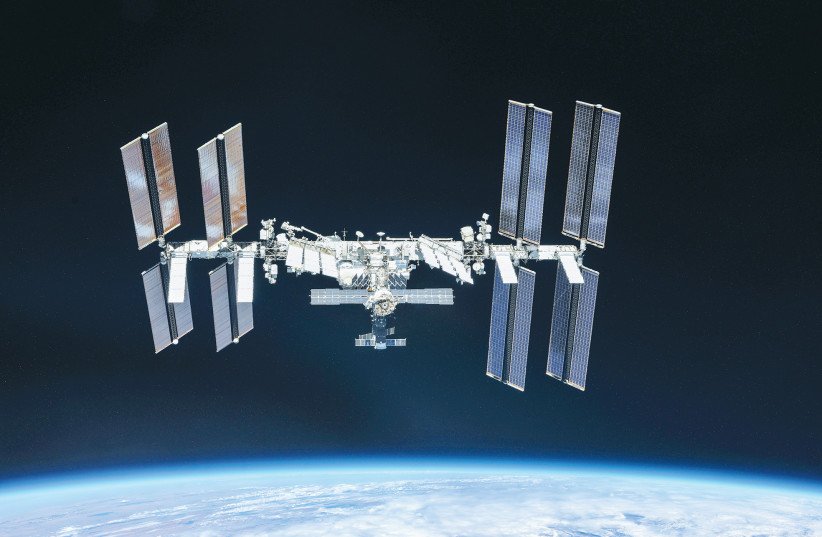The United Arab Emirates will send an astronaut to the International Space Station for a 6-month-long mission in 2023, becoming the first Arab country to send an astronaut on a long-term space mission, the Mohammed Bin Rashid Space Center (MBRSC) announced on Friday.
The MBRSC and Axiom Space signed an agreement at the UAE's embassy in Washington, DC on Wednesday to fly a UAE professional crew member to the ISS.
The Emirati astronaut will join the SpaceX Crew-6 in the Spring of 2023.
“It is our great pleasure to sign the agreement with the United Arab Emirates’ Mohammed bin Rashid Space Center, marking the first time a commercial space company has made such a mission possible,” said Michael Suffredini, president and CEO of Axiom Space. “Axiom Space is proud to provide MBRSC with a fight opportunity for a UAE astronaut, enabling its first long-term mission to the ISS.”

Israeli astronaut Eytan Stibbe was part of Axiom Space's Ax-1 crew which recently returned from the ISS. The Ax-1 was the first private mission to the space station.
Emirati astronaut Hazzaa Al Mansoori flew to the ISS in 2019 onboard the Soyuz MS15 spacecraft for an eight-day mission, but this will be the first long-term mission an Arab nation will send an astronaut on and the first non-ISS partner professional astronaut flight facilitated by a US commercial space company.
During his flight in 2019, Al Mansoori carried an Israeli flag that was later gifted to the State of Israel.
The Emirati astronaut will also be the first to serve as a member of two ISS Expedition crews. The astronaut will carry out a program of scientific experiments and a cultural and educational program.
"Our Emirati astronauts are highly equipped for this mission; having undergone a rigorous training programme that prepared them to conduct long-duration missions. Spacewalks and operating ISS systems were among many practices covered during their sessions," said H.E. Salem Humaid Al Marri, director-general of the MBRSC.
"Astronauts will conduct large-scale scientific experiments which will contribute to a greater understanding of space phenomena. We will collaborate with various countries to offer new data in support of future missions," added Al Marri.
"Signing the agreement to send the first Arab astronaut in a long-term mission of 180 days to the International Space Station is [a] new milestone for the UAE space sector. The UAE will be among 11 countries in the world that carried out long-term space missions," said His Highness Sheikh Mohammed bin Rashid Al Maktoum, vice president and prime minister of the UAE and Ruler of Dubai.
“Our space sector is constantly evolving. The new mission will add new experiences and knowledge to Emirati astronaut and the scientific community”, the UAE will continue its ambitions in the space sector," added Al Maktoum.
The Abraham Accords in space
In February, the Israel Space Agency published a joint call with their counterpart in the UAE on Thursday calling for research groups in Israel and the UAE to submit joint proposals based on data collected from the Vegetation and Environment monitoring on a New Micro-Satellite (VENµS) satellite.
Last year, the UAE's Hope Probe entered orbit around Mars, making it the fifth space agency to reach the planet and the first Arab country to do so.
In October, the UAE and Israel signed an agreement in which the two countries will collaborate on a number of space projects, including the Beresheet 2 mission to the moon and the development of space technologies.
